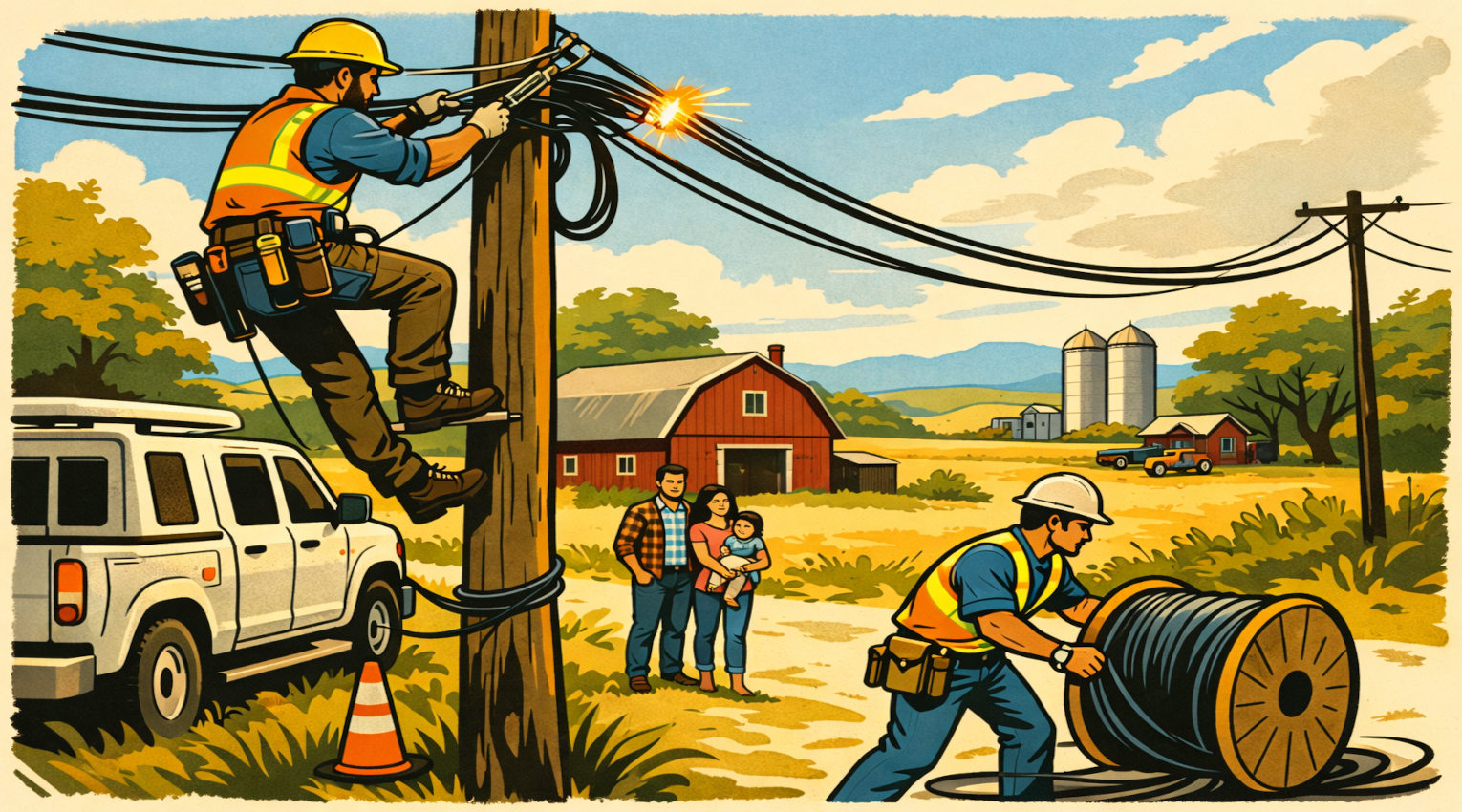Originally published by Townhall on August 28, 2017.
It’s difficult to participate in the modern world without access to affordable, high-speed internet. As the economy becomes increasingly digital and solutions to everyday problems continue to be found more and more online, lack of access to broadband threatens to leave millions behind.
While much progress in expanding access has been made, growth in broadband adoption has slowed in recent years. The FCC’s 2016 Broadband Progress Report estimates 34 million Americans, 10% of the population, lack access to the minimum broadband speed of 25Mbps. Further, over 46 million homes have access only to a single broadband provider and thus lack the price-reducing benefits of market competition.
Much of the challenge in spreading high-speed internet is due to the sheer size of the nation and the low population density of so much of the heartland. It has not typically been economical to build the infrastructure needed to provide broadband access to much of rural America. Thankfully, that need no longer be the case.
The FCC is in the process of repacking the broadcast spectrum to make way for more wireless broadband. As part of this process, “white spaces” found between TV channels will be available for public use. And one exciting possible use for this spectrum is to deliver broadband to rural America.
Many Americans already benefit from unlicensed spectrum through the use of Wi-Fi. However, Wi-Fi operates at very high frequencies and thus cannot travel far, often not even entirely throughout a single home. TV white spaces, on the other hand, are found at lower frequencies where a broadband internet connection can cover 9 miles.
Microsoft recently unveiled a rural broadband initiative to leverage private investment and use TV white spaces to expand broadband access to rural America. But Microsoft and other companies first need regulatory certainty before that investment can be unleashed.
The FCC can provide the certainty needed simply by finalizing several rules currently under consideration that would preserve three white spaces channels in every market for public use. Knowing that access to this spectrum will be assured going forward will allow private sector innovation to solve a pressing public problem. Economic analysis suggests doing so could lead to $28.4 billion in additional output per year and an increase of about 358,000 jobs.
Broadcasters are fighting to convince the FCC to close off public access to these critical unlicensed bands. Despite controlling 92 percent of the spectrum in the tv band, heavily subsidized broadcasters are pulling out all the stops, even spreading unsubstantiated scaremongering about potential interference with medical devices, to deny the preservation of just a tiny bit of spectrum to help expand broadband access to millions of Americans.
Thankfully, a large, bipartisan Congressional coalition is calling on the FCC to ignore these special interest pleas and help make expanding broadband through TV white spaces a reality. And FCC Commissioner Ajit Pai has spoken repeatedly about the need to expand broadband access. He and the FCC need to stick to their guns in the face of special-interested pleading and finalizing the rules to preserve tv white spaces for public access.

